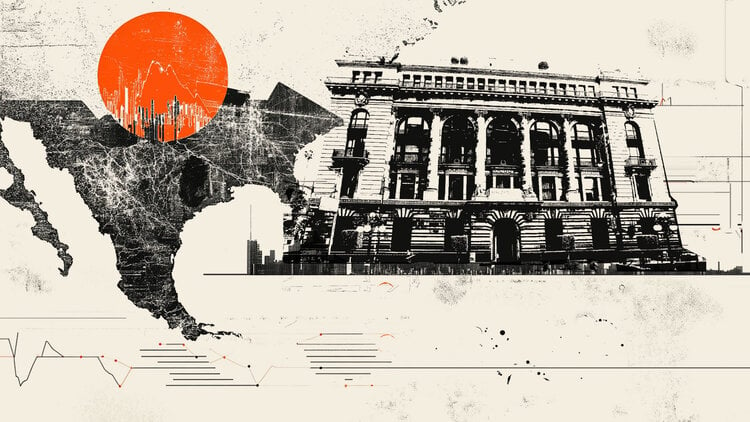At the start of his unprecedented third term, Xi Jinping stacked China’s top ranks with a roster of loyalists who he presumably hoped would smooth the path to achieving his grand vision for China.
Less than a year later, however, a turbulent storm is roiling Xi’s hand-picked ruling elite, raising questions about his judgment and diminishing international confidence in his governance – at a time when China faces major economic problems at home. and increasing competition with the United States on the world stage.
In a matter of months, two senior members of China’s cabinet who served as the country’s key interlocutors with the world have disappeared. The Minister of Defense, Li Shangfu has not been seen in public for three weeks, sparking speculation that he is under investigation.
Weeks earlier, the Minister of Foreign Affairs, Qin Gang was dramatically deposed after disappearing from public view for a month.
Their sudden absence comes at a time when Xi seeks to eliminate any perceived threats and vulnerabilities, an effort to bolster national security, in a context of rising tensions with the West.
Both Li and Qin serve among China’s five state councilors, a senior cabinet position that surpasses that of a regular minister. Li is also part of the Central Military Commission, a powerful body led by Xi that commands the armed forces.
Meanwhile, the surprise removal of two top generals has shaken the People’s Liberation Army’s Rocket Force, an elite unit created by Xi to modernize China’s conventional and nuclear missile capabilities, raising concerns of a broader purge of the forces. armed.
The Chinese government, which has become even more opaque under Xi, has offered little in the way of public explanation for the series of personnel changes, nor has it shown any interest in clarifying the inevitable speculation that has run rampant ever since.
On Tuesday, The Wall Street Journal reported that a Communist Party investigation found that Qin was involved in an extramarital affair while serving as China’s envoy to Washington, citing people familiar with the matter. China’s Foreign Ministry declined to comment on the report.
The lack of transparency over the fate of two high-ranking ministers has dealt a blow to Beijing’s international image, which has praised its political model as more stable and efficient than Western democracies.

Experts say growing uncertainty among China’s ruling elite has exposed the vulnerabilities of its one-party system – which have only been amplified by Xi’s concentration of personal power during what is now his third term.
“What’s happening in China really represents and reflects an absolutely tremendous political risk emanating from Beijing,” said Drew Thompson, a senior research fellow at the National University of Singapore.
“The political risk lies both between Xi Jinping and his relationship with his hand-picked subordinates, but also in the lack of established rules and norms that govern behavior in the system.”
As defense minister, a largely ceremonial role in the Chinese system, Li does not command combat forces. But he is an important face of China’s military diplomacy to the outside world, said James Char, a research fellow at the S. Rajaratnam School of International Studies in Singapore.
“If Li Shangfu is really in trouble, Beijing will be viewed very negatively for having two state councilors removed so early in Xi Jinping’s third term,” he said.
Since being promoted to the role in March, Li has traveled to Moscow twice to meet his Russian counterpart, visited the president of Belarus in Minsk and shook hands with US Defense Secretary Lloyd Austin at a conference security in Singapore.
In recent weeks, however, Li has reportedly missed a series of diplomatic engagements, including an annual meeting on border defense with Vietnamese officials and a meeting with Singapore’s Navy Chief in Beijing.

But experts have noted that there is a silver lining in Li’s mysterious absence when it comes to efforts to stabilize US-China relations.
Li was sanctioned by the US in 2018 over China’s purchase of Russian weapons, and Beijing has repeatedly suggested the US will not arrange a meeting with Li unless the sanctions are lifted.
If Li were to be removed as defense minister, it could potentially open a window for the resumption of high-level military talks between the two superpowers.
“Xi could not escape blame”
The potential fall of Xi’s own supporters would have a negative effect on the top leader, who has concentrated power and decision-making in his own hands to a level not seen in China in recent decades, analysts say.
“Two state councilors promoted by Xi ran into trouble within six months, no matter how hard the authorities tried to defend them, Xi could not escape blame,” said Deng Yuwen, a former editor of a Communist Party newspaper who now lives in the U.S. . “There will be questions within the party about what kind of people he has put in important positions.”
Rahm Emanuel, the US ambassador to Japan, even compared the formation of Xi’s cabinet to Agatha Christie’s novel “And There Were None Left”. “Who will win this unemployment race? China’s youth or Xi’s cabinet?” wrote the ambassador on X, a platform formerly known as Twitter.
China is already struggling with a range of economic problems – from record youth unemployment and rising local government debt to a spiraling housing crisis. Growing uncertainty in Xi’s ruling circle risks fueling a crisis of confidence in the world’s second-largest economy, analysts noted.

“Xi’s latest high-level purge underscores his belief that ideological cohesion, not economic performance or perceived military capability, are the pillars of a nation’s strength, a lesson he drew from the collapse of the Soviet Union.” , said Craig Singleton, a senior fellow on China at the Foundation for Defense of Democracies in Washington DC.
“Li’s removal may not seriously affect China’s state relations, but it will almost certainly reinforce the international business community’s growing concerns about party excesses and diminished transparency in China.”
Fight against corruption
Military leader Li, 65, began working at one of China’s main satellite launch sites in the southwestern province of Sichuan, rising through the ranks to become its director.
After three decades at the launch center, he was promoted to work on weapons at PLA headquarters in 2013, shortly after Xi came to power.
Li is believed to be a protégé of General Zhang Youxia, Xi’s childhood friend and closest ally in the military. In a sign of his prominence, Zhang was promoted to first vice chairman of the Central Military Commission (CMC) during a leadership reshuffle last October, despite having passed the unofficial retirement age.
From 2017 to 2022, Li was responsible for weapons procurement in China as head of the CMC’s Equipment Development Department, a position Zhang previously held.
In July, days before the two top generals were abruptly ousted, the Equipment Development Bureau announced a new crackdown on corrupt procurement practices, asking for tips on questionable activities dating back to 2017 – coinciding with the time Li took command of the department.

Since coming to power, Xi has waged a relentless anti-corruption campaign that has reached hundreds of high-ranking officials and generals and millions of lower-ranking officials.
“If we look back 10 years ago, Xi Jinping is still fighting corruption. He is still struggling with disloyalty. He even expresses his concerns about the army’s loyalty to the party,” said Thompson, a researcher at the National University of Singapore.
“This really reveals some fundamental problems in the nature of governance in Beijing. The lack of checks and balances, the over-reliance on top-down partisan control does nothing to remove the incentives that sustain the behaviors they are constantly trying to eradicate.”
“Such purges will continue to happen”
Despite having already accumulated more power than any other Chinese leader in recent decades, Xi continues to redouble his commitment to a campaign to consolidate his authority in China.
art and in the armed forces.
Last week, as speculation grew about the defense minister’s whereabouts, Xi called for unity and stability within the military during an inspection in northeast China.
“The lack of political trust among individuals in the system is an underlying driver of this campaign,” Thompson said.
Xi is not the only Chinese leader who has turned against his own circle after accumulating unparalleled personal power. Chairman Mao Zedong, the founding father of communist China and the most powerful leader before Xi, purged many of his once-trusted allies in the Cultural Revolution.
Char, an expert at the S. Rajaratnam School of International Studies, cautioned that the political changes do not suggest that Xi is losing his grip on power. “The very fact that he can remove anyone he wants says a lot about the extent of control Xi has achieved,” he said.
But he noted that the demise of Li and Qin is a symptom of China’s centralized one-party government. “Until Xi Jinping has the courage to reform the entire political system, I am sure that such purges will continue to happen.”
*With information from Simone McCarthy, from CNN.
Source: CNN Brasil
Bruce Belcher is a seasoned author with over 5 years of experience in world news. He writes for online news websites and provides in-depth analysis on the world stock market. Bruce is known for his insightful perspectives and commitment to keeping the public informed.







